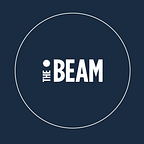How local women entrepreneurship supports global efforts in fighting climate change
The empowerment of women globally ensures more than just better lives for women themselves. The Founder and CEO of Solar Sister, Katherine Lucey, tells the stories of women bringing change to their families, communities and in turn, the world.
Listen to the full interview with Katherine Lucey on The Beam Podcast, Episode 3: Women at the Forefront of Climate Action.
No doubt, many of us take energy access and the ability to cook for ourselves, friends and family members without the use of kerosene for granted. Yet, still many people around the globe live in off-grid communities depending on health-harming and life-threatening kerosene, instead of clean and reliable solutions. How can we effectively reach the ‘last mile’? Solar Sister founded and lead by Katherine Lucey invests in local women and puts trust in women’s sisterhood in fighting energy poverty. With multigenerational benefits, the idea also supports achieving sustainable solutions in the climate crisis.
In the latest episode of The Beam Podcast — Women at the Forefront of Climate Action, we have asked Katherine Lucey to share with us the stories of women in rural Tanzania, Uganda, and Nigeria, and how becoming a Solar Sister entrepreneur supports their lives and the lives of their family members.
So we already talked with Sheila Oparaocha, about how, when women earn a salary, they invest their money into their family whereas men invest in themselves. Is it something that you’ve also seen on the ground, that women would invest more in, you know, their family, their children’s education — in opposition to what men invest in?
Katherine Lucey: Yes, absolutely. We’ve seen that proved out again and again. I can share the story of Rebecca, an entrepreneur in Uganda. She and her husband have 10 children that they care for. His two brothers had died of HIV AIDS, and so they adopted the brothers’ children as well as raising up their own. Rebecca became a Solar Sister entrepreneur, and with the money that she earned from that, she was able to tell us that now ‘I’m able to send all of the children to school.’ Both the boys and the girls.
Just incredible.
Katherine Lucey: Yeah. And that’s always the first thing that we hear from the entrepreneurs when we talk to them and say, OK, ‘Where where are you investing your money?’ We first teach about the difference in, you know, help create this understanding of the difference between the capital and the profits. And the capital goes back into the business. So, they do need to reinvest in their business to keep it thriving and growing. And then there is the profit from the business, we try to understand: what do they do with their profits? And the very first thing is always education. They invest in the education of their children. Often the education of their grandchildren. So, you can see that when you raise up women when you give them an economic opportunity, it has this multigenerational effect that we’ll see the benefits of next year and ten years from now and 20 years from now.
So that entrepreneur is creating income for herself, for her family, and then that improves in her community. Every family who buys a clean cookstove or a solar lamp is replacing the kerosene that they used to burn and now they’re using a solar lamp or a solar home system, that has an impact on the entire family. And then that ripples out from there. There is also the impact on the community: as people are no longer burning inefficiently cookstoves or they’re no longer using the kerosene to burn. The environmental impact of that ripples even beyond that. When we count back, we can say how many people have been directly impacted by clean energy. Who have changed from using kerosene and cookstoves to clean energy solutions at their household level. We can calculate that we have directly impacted over 2 million lives.
In Women at the Forefront of Climate Action, we also talk with Sheila Oparaocha, the International Coordinator and Programme Manager at ENERGIA, and Dr Katharine Wilkinson, Lead Writer for the book Drawdown — The Most Comprehensive Plan Ever Proposed to Reverse Global Warming.
Tune in. Listen to The Beam Podcast, Episode 3: Women at the Forefront of Climate Action
The Beam Podcast is available on Spotify and Apple Podcasts and wherever you get your podcasts.
Follow the conversation on Twitter: #TheBeamPodcast
Subscribe to The Beam for more.
